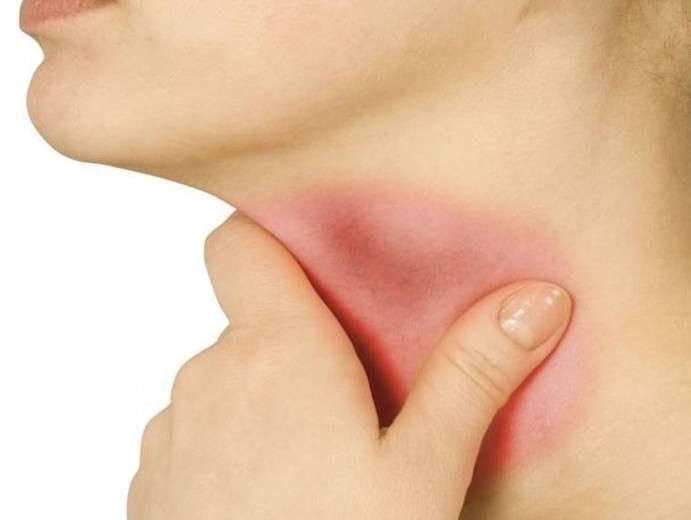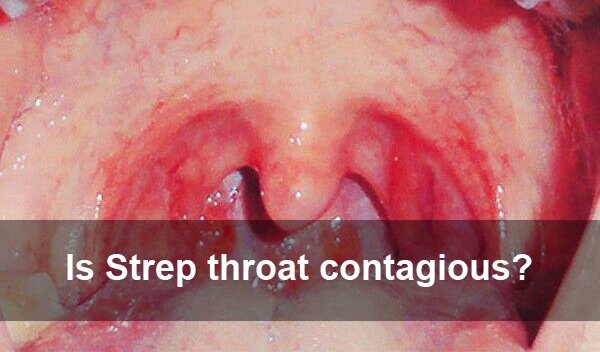Do you have an itchy throat?
An itchy throat is when you feel the recurrent sensation of wanting to scratch at, or sooth your throat from an irritating itch. It can often be from an exposure you are aware of, and have other associated symptoms, like post-nasal drip and congestion, throat irritation, and give you an urge to clear your throat repetitively. However, distinguishing a simple problem from one that is more worrisome is important. A simple itchy throat should resolve in a few days time unless other symptoms develop.

Itchy throats can also be accompanied by signs of infection, such as fever, pain with swallowing, chills, rash etc. An itchy throat should also never cause throat swelling, or make it difficult for you to breathe.
What is the cause of your itchy throat?
Allergies
Allergies are the most common cause of itch in general. Often people with allergies will have the symptom of itchy throat, itchy eyes, itchy ears, and itchy skin. Most often, these symptoms are chronic and the itchy throat symptom lasts chronically in some cases. The allergy can be to almost anything, from a food to a pollen, to a fabric to animal dander. It is well known that an allergy can be mild to severe. A mild allergy usually presents with mild symptoms of sneezing, itchy eyes, an itchy throat and a runny nose. These types of allergies can present only when exposed to the allergen, or they can be chronic such as an allergy to your cat’s dander. Many allergies are seasonal, such as with pollen exposure. The allergen enters the body, let’s say it is breathed in through the nose. Our immune system responds to the allergen, and a histamine release takes place causing the itching.
Treatment for allergies
The treatment of allergy is geared at decreasing the immune response with steroid nasal sprays, antihistamine sprays, and oral antihistamines such as cetirizine, diphenhydramine, fexofenadine, or loratadine.
IMPORTANT NOTE: A severe allergy may start as an itch in the throat, but it rapidly progresses into other symptoms such as palms itching, wheezing, feeling short of breath, throat closing, and even respiratory arrest. When someone begins to have these symptoms, it is a medical emergency. 911 should be called. People who have had such reactions should have access to Epinephrine, which needs to be injected subcutaneously to prevent the progression to respiratory arrest.
Irritants
Chemicals we are exposed to such as house cleaners, bleach, and air fresheners, cigarette smoke (either first hand or second hand smoke), and dust are all irritants to the nasal membranes and bronchi, producing what in effect looks exactly like an allergic response.
Treatment
The removal from the irritant is essential. However, symptomatic care can be used as well as antihistamines orally, as well as steroid sprays are effective.
Upper Respiratory Infections
If your itchy throat is accompanied by pain, fever, and difficulty swallowing, a pharyngitis, or throat infection may be brewing. These symptoms are caused by a viral infection most commonly, such as the common cold, or influenza. For more severe prolonged cases, one should see a doctor as the infection may be bacterial and require antibiotic therapy (i.e. Strep throat). Two other viruses cause more prolonged symptoms, mononucleosis (the “kissing disease”) and CMV, or cytomegalovirus. Any healthy individual can get any of these illnesses. Another bacteria which can cause a bad sore throat with excessive pus in the back of the throat, is the same bacteria that causes gonorrhea. This can only be obtained by performing oral sex on a person who has it. In the majority of these infections, an itchy throat is just at the very beginning, and the throat pain and swollen glands become much more prominent symptoms.
One can also get a fungal infection in the throat, otherwise called thrush, or oral candidiasis. This infection, however, is a concern when it arises. Candidiasis only develops in a person with an otherwise abnormal immune system. This occurs in people with AIDS, or who are immunocompromised from chemotherapy, steroids, or diabetes. Any person with a white coating that will not wipe off their tongue or inner cheeks should be seen by a doctor.
TREATMENT– for bacterial infections, the treatment is antibiotics. For fungal infections, the treatment is an antifungal. For viral illnesses, the treatment is only symptomatic care.
Gastroesophageal Reflux
GERD is the process of stomach acid rushing up into the esophagus. People who have a significant case may develop a cough and/or an irritated throat, which could present as an itchy throat. Often, such people get indigestion after certain foods, and have more symptoms at night, or while lying down. People who drink alcohol tend to have this frequently. The foods that commonly bring this on are tomatoes, citrus fruits, onions, garlic, spicy foods, and chocolate.
TREATMENT– antacid medication over the counter treats most cases of GERD adequately. One can try Tums or Rolaids. If these fail, increase the treatment with medications such as famotidine, or ranitidine, and if these fail, try omeprazole, lansoprazole, or esomeprazole.
Uncommon causes
There are a number of other causes of an itchy throat, but they are much more uncommon, such as a lesion or growth in the pharynx or upper trachea/esophagus, recurrent vomiting, vocal strain from yelling or singing, and trauma to the throat.
TREATMENT
The treatment of an itchy throat depends on the cause of the problem. Treating the underlying cause of the problem is crucial, as noted in the above sections. However, general symptomatic care of an itchy throat can be very effective, and most cases will resolve in a few days.
Symptomatic Care
- Topical relief can be obtained by over the counter remedies such as Chloraseptic Spray, etc.
- Topical throat drops/lozenges, especially with honey to coat the throat
- Using a gargle with warm water and make sure to stay hydrated
- Drinking warm tea with lemon and honey
- Acetaminophen or Ibuprofen for discomfort
- Guaifenesin to thin the mucus that may be dripping into the throat
- Pseudoephedrine to help decongest the nose and sinuses



